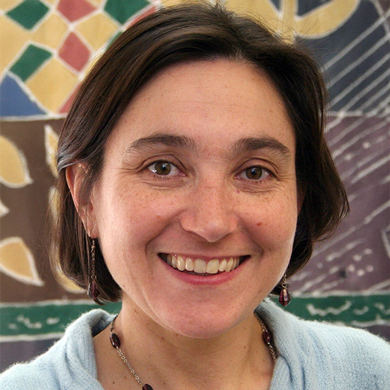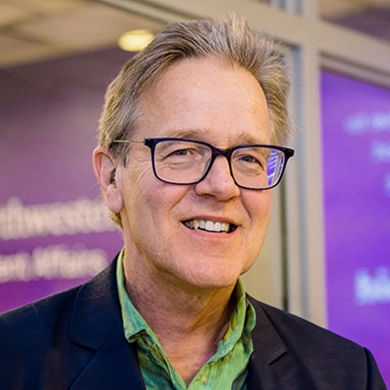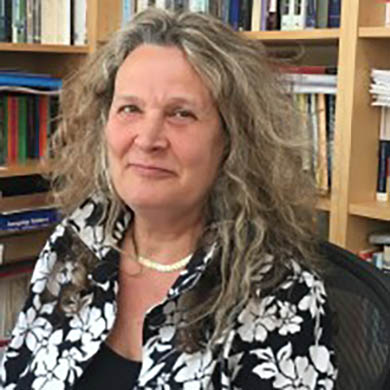Cognitive Science
Cognitive Science explores mental functions in humans, animals, and machines, including how they learn, reason, remember, acquire and use language, and how cognition develops.
How do thought, experience, and the senses produce understanding? How do biology and environment impact cognition? Understand how minds perceive, respond to, and make sense of the world.
Uncover areas of study that deepen our understanding of the brain and mind and lead to groundbreaking discoveries.
Cognitive Science explores mental functions in humans, animals, and machines, including how they learn, reason, remember, acquire and use language, and how cognition develops.
Linguistics investigates how language is acquired and processed, conveys meaning, and evolves for individuals and societies.
Neuroscience examines the nervous system, from the individual genes and proteins that control neural activity to mechanisms that govern complex human behavior.
Philosophy delves into the fundamental nature of knowledge, thought, and existence, tackling the most foundational questions asked by human beings.
Psychology is the scientific study of human behavior, including how people perceive the world, think, and act.
Check out some examples of courses that investigate the fascinating world of the brain and mind.
As a student, you can delve into the study of the brain and mind through interdisciplinary coursework, internships, community projects, and extra-curricular activities. You also can collaborate with faculty on cutting-edge research.
Born and raised in Los Angeles, Ramzy Issa ‘23 came to Northwestern as a Posse Scholar. Issa’s family is from Palestine and during his time on campus, he served as co-president of the Middle East and North African Student Association. A neuroscience and global health double major, Issa's research focuses on Arab-American health - a subject he will continue to explore next year in the Feinberg School of Medicine’s Northwestern Undergraduate Premedical Scholars Program.
One of my favorite courses was 'Positive Psychology.' As a psychology and cognitive science major, I spend a lot of time looking at dysfunction in the brain—at what goes wrong. This class focused on the other, far less popular, “side” of psychology: the idea of human flourishing. Exploring how to be the happiest, healthiest version of myself through researched intervention is what inspired me to pursue research in a lab at Northwestern.”
Get to know some of our dedicated professors who are passionate about teaching and nurturing your success as a student.
William Deering Professor of Neurobiology Catherine Woolley discusses developing new treatments for seizure disorders, designing labs for neuroscience research, and finding the perfect balance between teaching and research at Northwestern.
Professor Sylvia Perry highlights that the small class sizes at Northwestern University promote strong connections between students and faculty. With engaging courses and innovative faculty research, the environment encourages students to explore significant topics and develop their own insights.
Professor Vijay Mittal shares what makes Northwestern University’s psychology department so unique. With a faculty that genuinely values undergraduates, Northwestern offers students rare opportunities to work directly with top researchers in the field. He shares how students engage in hands-on research and collaborate with world-leading experts.


Paller’s research focuses on the human mind and the intricate relationships between brain activity and conscious experience. His lab group developed new methods to influence the mind during sleep, which in turn can improve many aspects of the waking mind, including memory, creativity, and psychological well-being.

Professor Dan McAdams developed the psychological concept of narrative identity – the stories rattling around our minds shaping who we are and who we are becoming. His enterprising students pushed it in unexpected directions.

Cristina Lafont, the Harold H. and Virginia Anderson Chair, explores the dynamic interplay of democracy, governance, human rights, religion, and politics, emphasizing how ordinary people actively engage in these processes.

Professor Tackett proposes bringing together expertise from different areas of psychology to study early leadership, and how it emerges, develops and influences leadership ability in adults.
Explore student clubs, internships, and campus resources.
In Weinberg College's monthly podcast, alumni share their career experiences. Discover stories about working in fields related to brain science and exploration of the mind.


General properties of sleep and circadian rhythms; how sleep and the circadian clock regulate a number of diverse activities at the cell, organ, and organism levels. The importance of biological rhythms and sleep for human health and disease will be covered in this course.
Advanced seminar focusing on molecular mechanisms and aberrations of synaptic signal transduction and drugs that target them.
This course will be an exploration of how particular psychological theories and concepts can inform our understanding of the events of the Holocaust at both a group and individual level. Material from the fields of Social and Clinical Psychology will be a particular focus of the course. Six major topics will be explored vis-à-vis literature, historical accounts, film, and psychological theory: (1) Perpetrators and Bystanders; (2) Upstanders/Resisters; (3) Survivors; (4) Children of survivors; (5) Deniers; (6) Modern American Jewish identity, culture, and humor in the wake of the Holocaust.
Understanding brain function is a grand challenge for twenty-first century science that promises revolutionary applications to medicine and artificial intelligence. Mathematical modeling can contribute valuably to this understanding by allowing scientists to formalize experimental findings and reason beyond their intuition.
Introductory course addressing philosophical issues arising from the study of intelligence, including the possibility of machine intelligence and its relevance to the study of human intelligence.
Understanding the nature of psychological, emotional, and behavioral disorders. Emphasis on current evidence regarding causes and characteristics of these disorders.
The study of language and its biological basis from linguistic, psychological, and neuroscientific perspectives.
Got an upset belly? You might be told to eat yogurt for probiotics! While it’s well-known that gut microbiota affects digestion, recent evidence reveals fascinating interactions between gut microbes, the immune system, and the nervous system. These interactions can alter brain physiology, influence behavior, and affect neural development and diseases. This course explores this evolving field through critical readings of research literature. Together with the instructor and classmates, you'll learn about current knowledge, examine key studies, and propose ideas for future research in this exciting area.